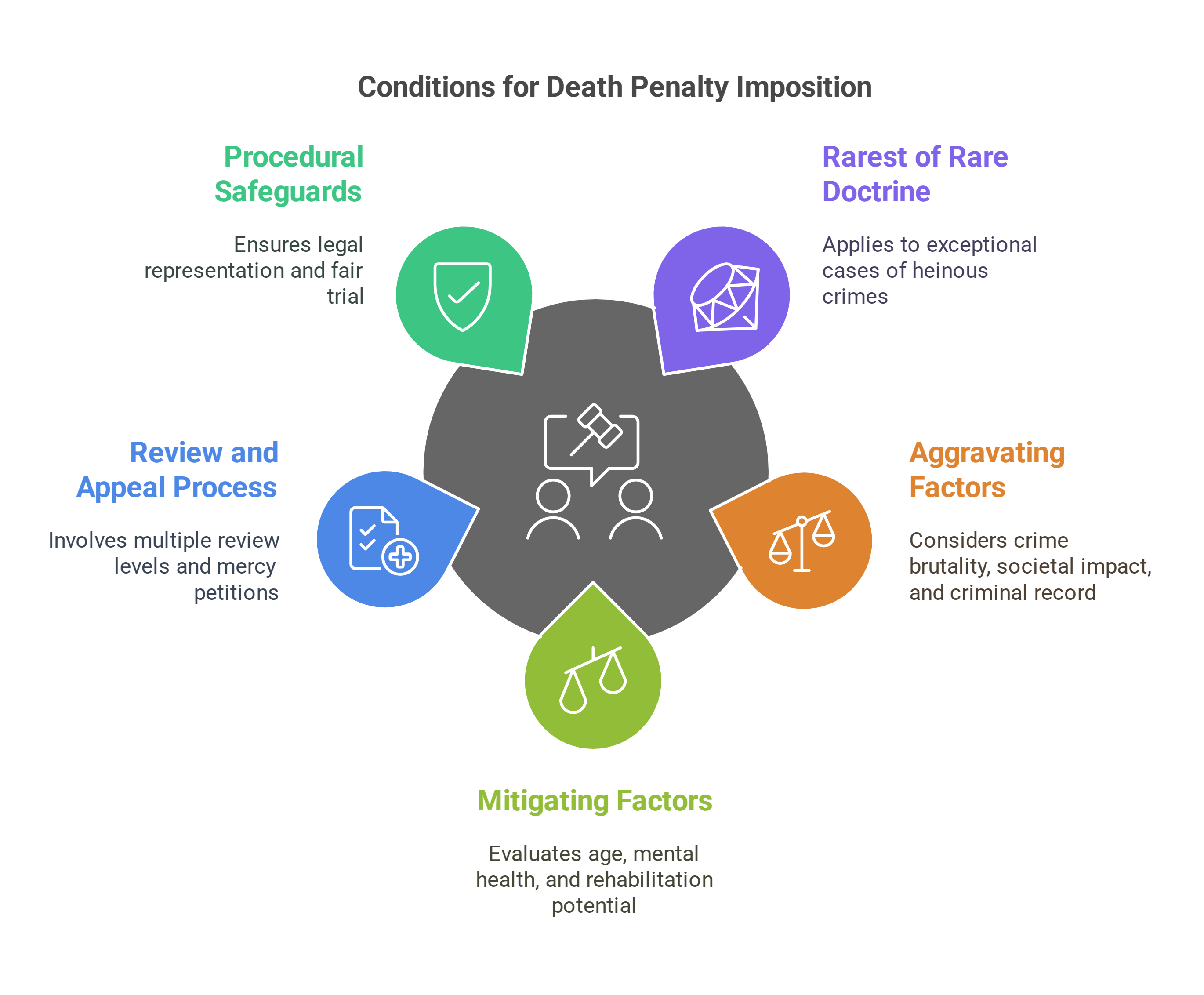Context:
SC’s Approach in 2024
In 2024, trial courts awarded 139 death sentences, with 62% (87 cases) involving murders and 25% (35 cases) related to sexual offenses. However, out of the six death penalty appeals heard by the Supreme Court, none were confirmed. The SC commuted five death sentences to life imprisonment, and one convict was acquitted.
The Court’s cautious approach aligns with its 2022 ruling, which mandates that reports on the accused’s life history, mental health, and jail conduct must be considered before imposing the death penalty.
Rise in Death Row Prisoners
The report indicates a sharp rise in death row prisoners, with 564 individuals on death row by the end of 2024—the highest since 2000. Despite this, there was a notable decrease in death sentences for sexual offenses compared to previous years.
Disparities in Death Penalty Imposition
The report highlights a major gap in the trial process, as mitigating factors were often not considered at the trial court level.
-
- 90.5% of the 139 death sentences in 2024 were imposed without psychiatric evaluations or jail conduct reports, despite the Supreme Court’s directive.
- This raises concerns regarding fairness and due process in capital punishment cases.
- 90.5% of the 139 death sentences in 2024 were imposed without psychiatric evaluations or jail conduct reports, despite the Supreme Court’s directive.
Regional Trends
-
- Uttar Pradesh recorded the highest number of death sentences (34), followed by Kerala (20) and West Bengal (18).
- The high number of death row prisoners is linked to the slow pace of appeals at High Courts and frequent imposition of death sentences by trial courts.
- Uttar Pradesh recorded the highest number of death sentences (34), followed by Kerala (20) and West Bengal (18).
Role of High Courts
In 2024, High Courts confirmed 9 death sentences, commuted 79 sentences, acquitted 49 convicts, and sent one case back to the trial court.
-
- This reflects a more cautious approach by appellate courts, emphasizing mitigation factors in death penalty cases.
- This reflects a more cautious approach by appellate courts, emphasizing mitigation factors in death penalty cases.

SC Conditions for Death Penalty
-
- Rarest of Rare Doctrine: Death penalty is imposed only in exceptional cases involving heinous crimes where no other punishment suffices.
- Aggravating Factors: Includes the brutality of the crime, its impact on society, and the criminal’s prior record.
- Mitigating Factors: Takes into account the accused’s age, mental health, and potential for rehabilitation.
- Review and Appeal Process: Multiple levels of review, including the possibility of mercy petitions to the President or Governor.
- Procedural Safeguards: Ensures legal representation and guarantees a fair trial for the accused.
- Rarest of Rare Doctrine: Death penalty is imposed only in exceptional cases involving heinous crimes where no other punishment suffices.
About Project 39A
Project 39A is a research and legal aid center at National Law University, Delhi, focusing on the death penalty, legal aid, and criminal justice.
It draws inspiration from Article 39-A of the Indian Constitution, which advocates equal justice and opportunity.
Conclusion
The rise in death row prisoners and the Supreme Court’s reluctance to confirm death sentences underscore the need for reforms in India’s capital punishment system. Stricter implementation of mitigating evidence standards is essential to ensure fairness and justice in death penalty cases.







